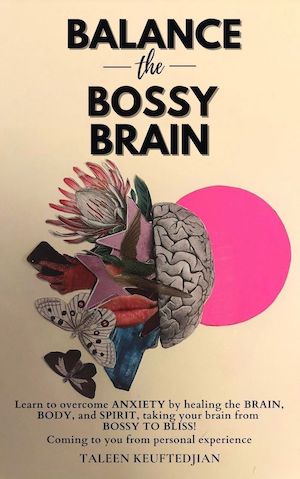Menstrual Cycle Hormones Mood
PMS usually occurs 7 days before a woman’s menstrual cycle begins. Symptoms associated with PMS include mood swings, breast tenderness, food cravings, fatigue, irritability, PMS depression, anxiety, and sleep disturbances. PMS symptoms are usually a result of progesterone and estrogen fluctuating throughout a woman’s cycle. Both of these hormones can play an important role in relaxation and mood, which is why low levels could affect mental health. This is why you might find yourself asking, “Why do I get so angry before my period?” Some women also might experience depression and anxiety during ovulation. It’s important to understand how the female hormones fluctuate throughout the month in order to learn how to cure hormonal imbalance in menstruation.
What Does Progesterone Do?
Progesterone is a female sex hormone that plays an important role in the menstrual cycle and pregnancy. Progesterone fluctuates throughout a woman’s cycle and produces a relaxing effect that can help with mood disorders.
Low Progesterone Symptoms
- Irregular menstrual cycles
- Anxiety and depression
- Mood swings
- Infertility
- Unhealthy looking skin
- Fatigue
- Cognitive issues
- Low libido
- Sugar cravings
What Does Estrogen Do?
Estrogen is a female sex hormone that helps develop and maintain the reproductive system and female attributes. Men produce estrogen as well but at lower levels than women. Estrogen plays a big role in maintaining good health, so it’s important to keep this hormone in balance.
Low Estrogen Symptoms
- Fatigue
- Mood swings
- Depression and anxiety
- Low sex drive
- Irregular menstrual cycles
- Breast tenderness
- Cognitive issues
- Sleep disturbances

Why do I get so angry before my period?
Women’s hormones fluctuate throughout the month in order to facilitate pregnancy. Unfortunately, mood and anxiety levels tend to mimic the rise and fall of these hormones. Let’s take a look at what goes on during a 28-day menstruation cycle, starting with the first day of your period.
Week 1
By day 1, estrogen is at its lowest. During these 7 days, estrogen levels will increase thereby boosting serotonin, providing enhanced mood, as well as physical and mental energy.
Week 2
Day 8 through ovulation. Estrogen continues to rise until ovulation occurs. Testosterone also begins to rise a few days before ovulation. This increase in estrogen keeps the mind sharp and clear.
Week 3
Occurs the day after ovulation begins. At this point, progesterone rises, while estrogen and testosterone fall. Serotonin levels fall with the decrease in estrogen; however, this can be offset by the rise in progesterone. Progesterone has a sedating effect that can assist with relaxation. As a result, some may experience fluctuations in mood or anxiety during ovulation. Within a few days of ovulation, estrogen and testosterone will begin to rise again. Therefore, if the drop in estrogen did increase your anxiety during ovulation, it should subside within a few days as it begins to increase again.
*One more thing to note is that progesterone makes you more sensitive to drops in blood sugar. If you feel anxious during this time of your menstruation cycle, make sure to keep your blood sugar up. You can do this by eating a piece of fruit.
Week 4
During the 7 days prior to menstruation, estrogen and progesterone plummet which can contribute to an increase in PMS mood swings, anxiety, fatigue, overeating, bloating, hot flashes, PMS depression, and insomnia.
Period Tracking App:
Learn how to cure hormonal imbalance in menstruation by monitoring your menstrual cycle.

Understanding how hormones affect your body is the key to managing your mental health. Women who experience PMS mood swings should monitor their mental status throughout their menstrual cycle to determine whether low progesterone and estrogen could be the culprit. Suffering from fluctuating hormones doesn’t need to be inevitable and can be managed through diet, supplementing, and exercise. Check out this article on how to make PMS mood swings go away.
How to Cure Hormonal Imbalance in Menstruation
The good news is that PMS can be managed through diet, lifestyle, and supplementation because there’s a strong connection between the brain and gut. There are so many good reasons to focus on improving your diet and finding PMS relief is one of them. Check out this article on how to make PMS mood swings go away.
A relatable guide to overcoming anxiety by finding the root cause, and bringing the brain, body, and spirit back into balance. Coming to you from personal experience!
Learn more about Habitat for Wellness


